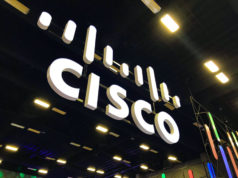Inter-Tel shareholders yesterday voted to allow their company to be acquired by Mitel for $723 million ($25.60 a share) in a vote that looks to be the next-to-last chapter in the acrimonious year-long proxy battle between Inter-Tel’s current management and the company’s founder.
The only barrier now is a hearing on an injunction to block the takeover, which is to be heard by the Delaware Court of Chancery Aug. 8.
Following the vote, in which more than 60 percent of outstanding shares cast favored a sale to privately held Mitel, Inter-Tel and Mitel said that if the court refuses an injunction, their plan is to close the deal as «promptly as practicable after the hearing.»
The merger will create what will be the Number One marketshare leader in the small- to medium-size business (SMB) IP telephony equipment market in the United States, according to Terry White, vice president at TelecomWeb news break sister unit InfoTech’s InfoTrack for Converged Communications.
«This merger will give Mitel the highest market share in the U.S. SMB market for IP telephony,» says White. In 2006, Mitel was ranked Number Four with 10.6-percent share, and Inter-Tel was Number Seven with 8.9-percent share. The combined share of 19.5 percent would have ranked them Number One by a wide margin ahead of Cisco (13.5 percent) and Nortel (13.1 percent).
«By acquiring Inter-Tel, Mitel will be able to leverage Inter-Tel’s two major strengths and unique competitive differentiators,» White continues, citing the fact that it derives about 75 percent of its sales from managed-services offering and fields its own direct sales force for the medium business market.
Mitel’s offer for Inter-Tel (TelecomWeb news break, April 27) was a «white knight» offer to counter an attempt by Inter-Tel founder (and, until earlier in the year, CEO) Steven Mihaylo, who had floated a $600 million leveraged takeover bid for the company (TelecomWeb news break, June 16, 2006). That was the latest move in a nasty battle between Mihaylo and current management over the best way for the company to survive in the emerging world of IP telephony. Officially, Mihaylo had resigned from his CEO post at the beginning of the year (Broadband Business Forecast, March 7) but it quickly became clear he was forced out.
Mihaylo had been offering $22.50 per share for Mitel, an offer that was rejected. This led Mihaylo, who owns 19.4 percent of Inter-Tel’s shares, to announce plans for another proxy battle. In an SEC filing, Mihaylo outlined what he called a «seven-point plan to maximize stockholder value,» proposing among other things a share buyback totaling between $200 million and $250 million via Dutch auction in order to entice other shareholders to his side.
He finally withdrew that plan last week, apparently because it wouldn’t have worked, due to flagging Inter-Tel sales and profits. Almost ironically, it was Mihaylo’s battle to take over the company that is blamed by some analysts for the slump in Inter-Tel results.
Perhaps more critical in the vote, proxy adviser Institutional Shareholder Service, which had been advising Inter-Tel shareholders to reject the Mitel offer and to push for a higher offer, reversed itself at the last minute and recommended Inter-Tel shareholders approve the merger. It cited several reasons for the change in heart, including Inter-Tel’s earnings and a debt-market rating — issues that made it less likely another bidder would emerge. Inter-Tel itself had been steadfastly refusing to increase its own offer, which represented only a relatively modest 7.6-percent premium over trading prices immediately before it put its bid on the table.
Fuente: TelecomWeb


















